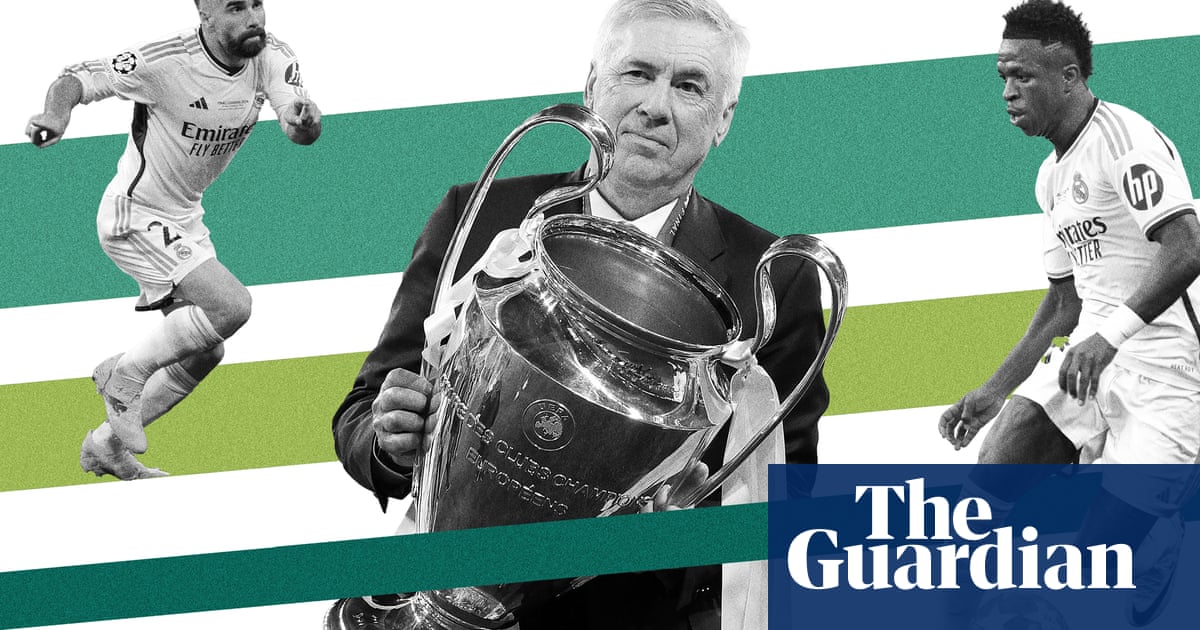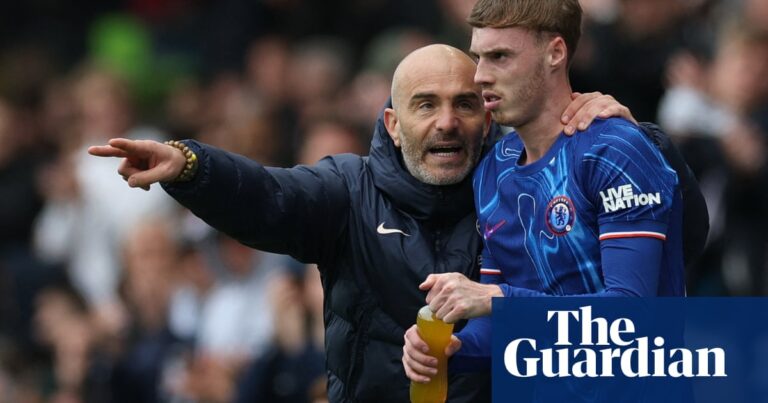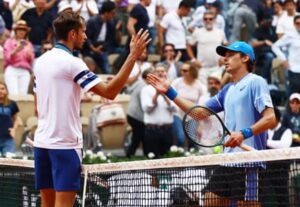
Some day they’ll come up with a different story. Yet again, Real Madrid didn’t seem entirely convincing. Yet again, their opponents had chances. Yet again, there was a sense they rode their luck. And yet again, they won and, by the end, were so much in control that it seemed bizarre they had ever been doubted. Victory over Borussia Dortmund on Saturday gave Madrid their sixth Champions League in 11 years and, yet again, there was a curious sense that they had won it largely because they are used to winning it.
There are two distinct – and apparently contradictory – aspects to this. On the one hand, there is a sort of revisionism going on, an attempt to suggest that Madrid just do things differently, that because they and their coaches, whether Zinedine Zidane or Carlo Ancelotti, don’t have a clearly defined philosophy their tactical excellence is underplayed. And perhaps there is some truth to that; but on the other hand, Dortmund’s Karim Adeyemi did squander two glorious opportunities with the score at 0-0 on Saturday. Madrid do give their opponents a lot of chances.
after newsletter promotion
But on the other, there is the fact that they do keep doing this. They do get away with things. Their opponents often make daft errors – on Saturday it was Ian Maatsen, but goalkeepers seem especially susceptible: think Loris Karius, Gianluigi Donnarumma or Gianluigi Buffon on fairly recent memory. And their players often do brilliant or unexpected things just when required: a Luka Modrić cross with the outside of his right foot, a Gareth Bale overhead kick, 5ft 7in Dani Carvajal outjumping 6ft 2in Nicklas Füllkrug to score his first Champions League goal in five years. There must be a reason. Fortune plays a greater role in football than people often like to admit, but this level of success can’t just be down to luck.
Pep Guardiola, in particular, must look at Madrid’s success over the past decade with a degree of bewilderment and reflect on all the misfortune that has befallen him in the competition: the Icelandic volcanoes, the missed chances, the games dominated and lost to a single breakaway. There he is with 12 league titles in the 16 years since he became a manager, apparently a relentless, remorseless winner, and yet stuck on just three Champions Leagues. “Just” of course, is a slightly absurd term that makes sense only with context; only Ancelotti has ever won more; only Zidane and Bob Paisley can match him, and yet it feels, given how his sides have dominated, somehow not quite sufficient.
Ancelotti, by contrast, to go with his five Champions Leagues, has only six league titles. Again, “only” feels needlessly judgmental, but given the teams he has managed that figure too is on the low side. He may be the only coach to have won each of Europe’s “Big Five” leagues but La Liga is the only one he has won twice. And it was on his watch as Madrid manager the first time round that Atlético won La Liga, on his watch as Paris Saint-Germain manager that Montpellier won Ligue 1.
But perhaps that is not coincidence. Ancelotti was dismissed by Bayern in September 2017 because the squad felt he wasn’t intense enough. It may be that his sense of perspective means that he does not quite have the almost pathological drive of so many managers and that makes form and focus hard to maintain over the course of a full league campaign. But it may also be that that deficit is also what makes him so effective in knockout competition, that players need no external motivation for big quarter- or semi-finals, but what is useful is somebody who keeps them calm. It may be that when a game appears to be going against them, it is more beneficial to see a manager who still appears to have complete faith than one who is raging at the fates, falling to his knees and tearing at his scalp. Ancelotti is the only coach in the last five years to eliminate Guardiola from Europe over two legs – and he’s done it twice.
More league titles at Madrid now seem likely with Barcelona in financial and political crisis. Kylian Mbappé will arrive in the next few days and, while he, as a Galáctico, represents a change to recent strategy and there are questions as to exactly where he will fit given his preference for coming on from the left would appear to replicate what Vinícius Júnior does, he is a player of exceptional quality.
Ancelotti is not the ferociously intense high priest of some coaching philosophy, but what he is good at is connecting with players, at drawing exceptional performances even from those who do not command extraordinary fees – players such as Andriy Lunin, Nacho Fernández and Lucas Vázquez. When Guardiola is held up as the greatest coach of his generation, Ancelotti is a reminder that football is a game that can reward more than one approach. It may even be that in the Champions League, the more relaxed style is more effective.
-
This is an extract from Soccer with Jonathan Wilson, a weekly look from the Guardian US at the game in Europe and beyond. Subscribe for free here. Have a question for Jonathan? Email [email protected], and he’ll answer the best in a future edition
Source: theguardian.com


















